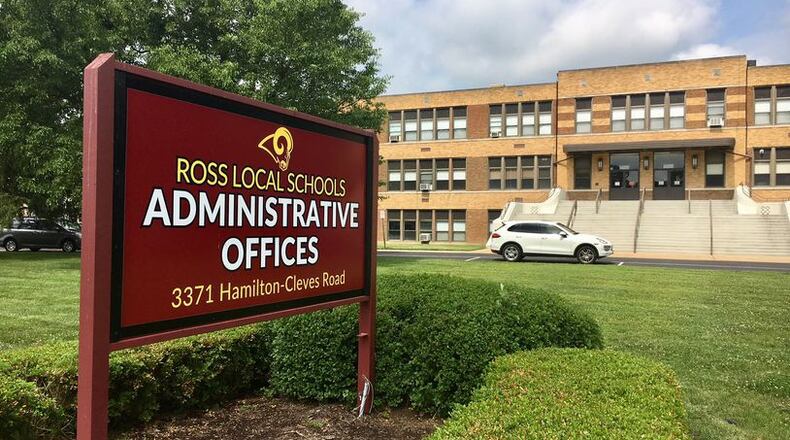Ross Schools are headed to the Aug. 2 ballot with a proposed property tax increase prompted by projected budget shortfalls and warnings from the Ohio Department of Education (ODE) about falling into the preliminary process of state control should the schools not return to solvency.
Residents in the 2,800-student, largely rural school system will be asked to decide on a 5-year, 7.99-mill, emergency property tax levy that if approved at the ballot would raise the annual school property taxes for the owner of a $100,000 home by $279.65.
Ross officials did not respond this week to requests to comment but in a May 4 statement said failure of voters to pass the proposed tax hike “the district will be forced to take immediate action.”
“These actions will, unfortunately, cut deeply and cause significant damage to the learning environment. The need to increase revenue won’t go away but only become greater as time moves on. The levy will reappear on subsequent ballots, and each time the millage will have to be increased due to the lag in funding.”
Voters in the Talawanda school system will see their own proposed tax hike on election day in November as the district tries to make up for its projected financial deficit.
The last time Talawanda asked for operating funds was 2004 when a 1% income tax was approved by the voters.
“Like many other rural districts and nearby districts, Talawanda is deficit spending and the newly changed student funding (state) formula has not helped Talawanda students and its taxpayers,” said Ed Theroux, superintendent of the district.
Voters will see a proposed 5.7-mill property tax increase on the November ballot, which if approved, would mean starting in 2023 the owner of a $100,000 home would pay an additional $200 annual in school taxes.
“We continue to analyze or fiscal expenditures including making decisions to reduce costs and save money. Even with the continued reductions and cost savings, the state share of our school funding formula does not keep up with inflation and increased costs,” said Theroux.
Officials in Madison Schools recently announced they will forego returning to the ballot for now and instead make a series of budget cuts in personnel and programs, including raising sports participation fees.
The district saw voters defeat a proposed school income tax in May.
“Madison Schools is facing a forecasted budget shortfall of $1.77 million for fiscal year 2026. The (school) board has cut the budget for fiscal year 2023 by $600,000 to prepare for this anticipated deficit,” said Madison Superintendent Jeff Staggs.
Among the coming cuts for the 2022-2023 school year are: Six classified and certified staff positions will not be filled as personnel are laid off or positions are left vacant due to attrition, he said.
And pay-to-play fees for sports will be raised to $200 per student activity with no maximum cap for families with multiple children.
“These reductions will enable the district to operate without asking voters to approve additional tax dollars” for a limited time, said Staggs.
About the Author

